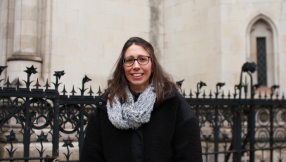Church bells ring to highlight toll of biodiversity
As the bells toll at the UN headquarters in both New York and Nairobi, bell ringers from small parish churches to large cathedrals and minsters are being encouraged to ring on September 22, the day the UN General Assembly will discuss for the first time ever the crisis affecting the world’s biodiversity.
This year was declared the UN 2010 International Year of Biodiversity (IYB) and the Church of England is one of the official partners in the UK.
With a Christian presence in every community, around 6,000 of the CofE’s 16,000 churches have a peal of bells (not including those with a single bell). IYB in the UK is encouraging bell ringing by faith groups, schools and organisations from 12-2pm.
The UN declared 2010 as IYB in recognition of the fact that, despite the formation of the UN Convention on Biological Diversity (CBD) following the Rio Earth Summit, targets set to stop the global loss of biodiversity by 2010 have not been met.
In October, following the UN meeting, the 193 heads of state who are signatories to the Convention will meet in Nagoya in Japan to make binding agreements. The Secretariat of the Convention is encouraging the ringing of bells all over the world as an urgent ‘memo’ ahead of this meeting to rouse the world to take action to stop the loss of species.
David Shreeve, the Church of England’s national environment adviser said: “As Christians we believe it is important to care for God’s creation and our natural world is suffering because of our own actions.
"Many of our estimated 10,000 churchyards are full with often rare biodiversity and others in towns and cities support fewer, but equally important wildlife. The church is providing protected havens right on our own doorstep.”
Dr Jill Hopkinson, the Church of England’s National Rural Officer, said: “Ringing the church bells is a great way for the wider community to be reminded and to celebrate the beauty of creation.
"Rural churches are at the heart of village life and their churchyards are part of the collective history and memory of that community. Celebrating the biodiversity of countryside and churchyard will bring a community together and ringing the bells is a very prominent way of doing it.”
Dr Bob Bloomfield, co-ordinator of IYB in the United Kingdom said: “It is excellent that the Church of England see the importance of people being responsible stewards of the environment.
"Their support of the International Year of Biodiversity will encourage people to ask why biodiversity is so important and what would be the consequences of its loss on the health and wellbeing of people and the environment.
"The bell ringing will draw attention to critical negotiations taking place in Nagoya that will effect all of us for decades to come.”













